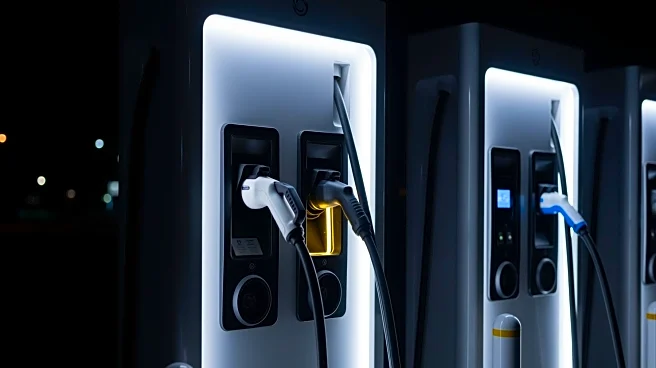What's Happening?
Rivian Automotive, an all-electric vehicle manufacturer, has announced a significant workforce reduction, laying off approximately 4.5% of its employees, which equates to over 600 jobs. This decision comes
as the company faces mounting market pressures, including the end of a federal tax credit for electric vehicle purchases. Rivian's CEO, RJ Scaringe, communicated the layoffs in a memo, highlighting the need to restructure marketing, vehicle operations, sales, delivery, and mobile teams. The company has been struggling with lower-than-expected demand, regulatory challenges, and a cash shortage, having reported a $1.1 billion loss in the second quarter. Rivian plans to release its R2 SUV in 2026 and is constructing a third manufacturing facility near Atlanta to support future production.
Why It's Important?
The layoffs at Rivian underscore the challenges faced by electric vehicle manufacturers in the current economic climate. The removal of the $7,500 federal tax credit for EV purchases has significantly impacted consumer demand, making it difficult for companies like Rivian to maintain sales momentum. This development could have broader implications for the EV industry, potentially slowing down the transition to electric vehicles in the U.S. and affecting related industries such as battery production and renewable energy. Stakeholders, including employees, investors, and environmental advocates, may face setbacks as the company navigates these challenges.
What's Next?
Rivian is focusing on future growth by planning the release of its R2 SUV in 2026, which is expected to be more accessible to consumers than previous models. The construction of a new manufacturing facility is underway to support this expansion. However, the company must address its current cash shortage and regulatory hurdles to stabilize its operations. The broader EV market will be watching closely to see how Rivian adapts to these changes and whether it can regain its footing in a competitive industry.












